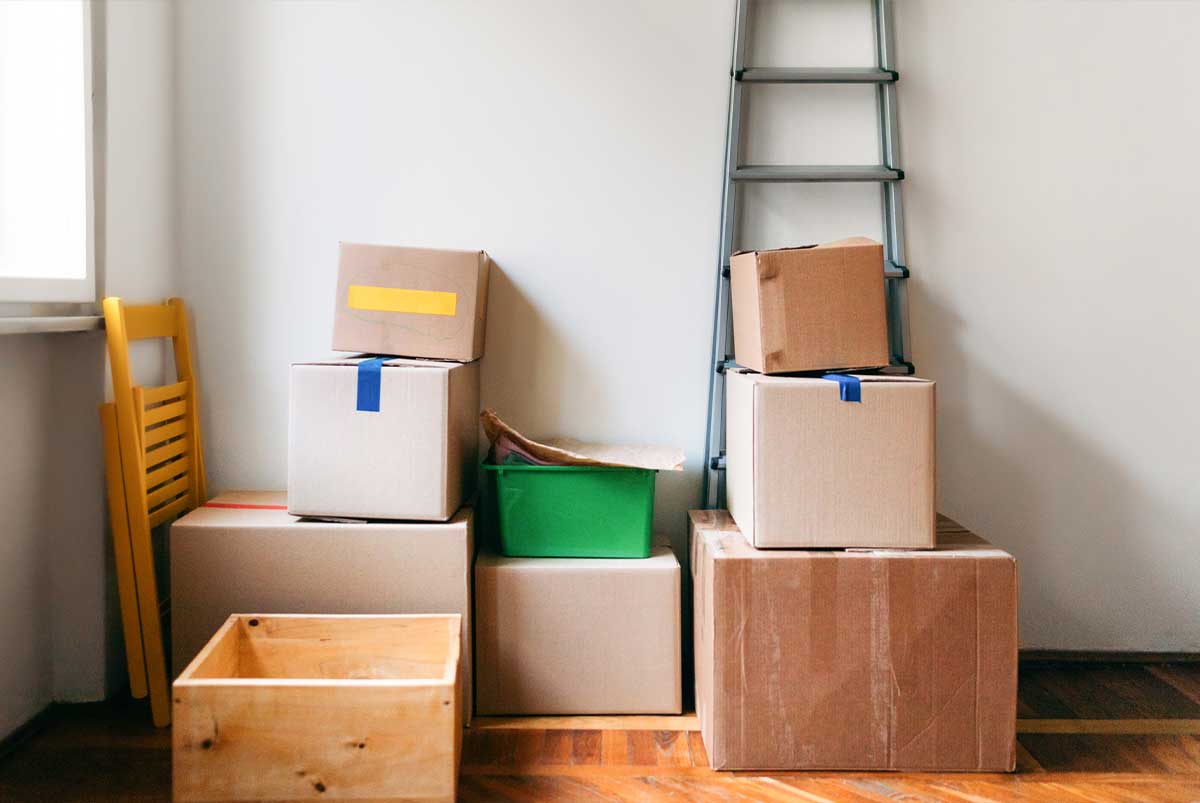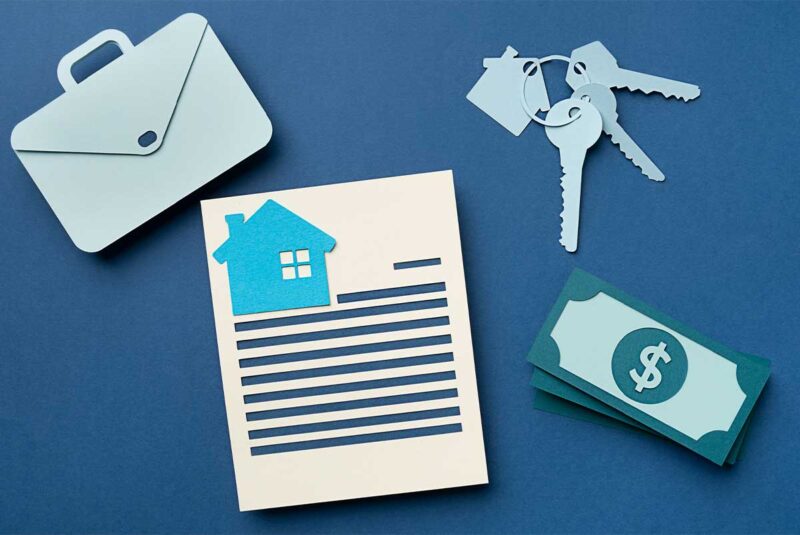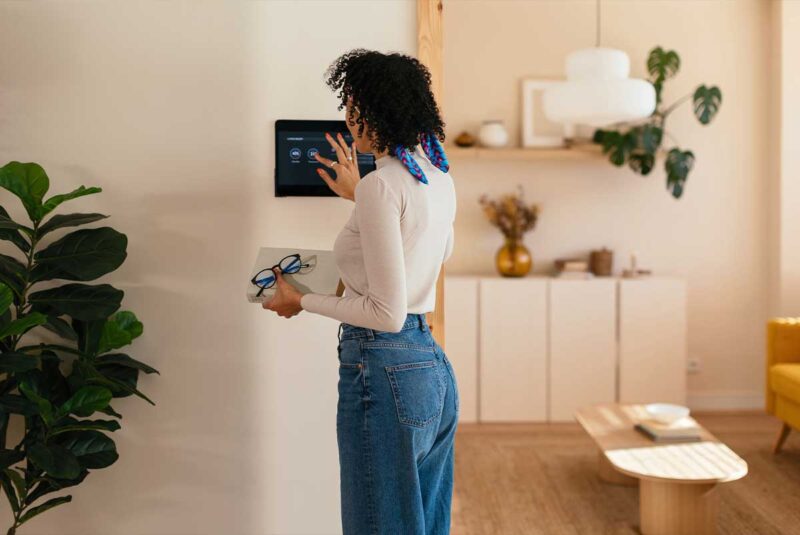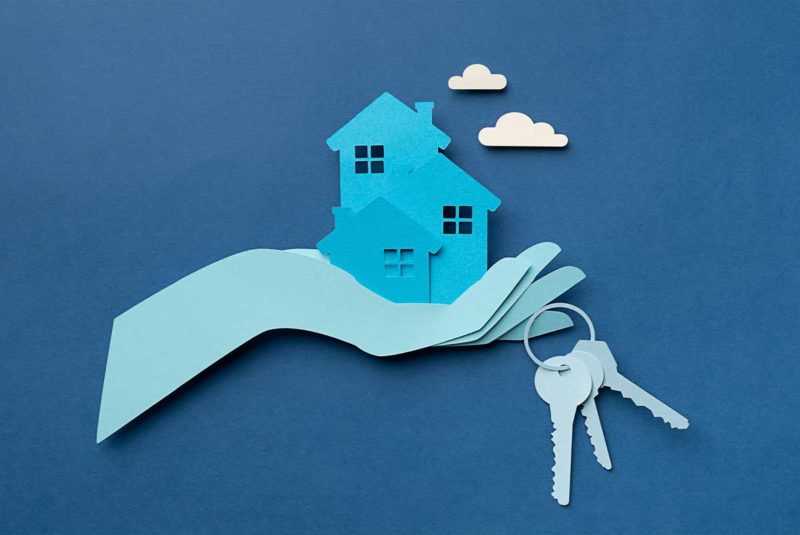Ready To Buy a Home?
Get Approved to Buy a Home
Rocket Mortgage® lets you get to house hunting sooner.
Buying a home is expensive – period. And while borrowers with lower incomes will likely find the home buying process far more challenging – they aren’t necessarily locked out of the housing market.
Lower-income borrowers can take advantage of private mortgage loans and public home buyer programs to help purchase a home.
It’s all about knowing where to look for help.
Can I Buy a House With Low Income?
Technically, there’s no minimum income requirement to buy a home. But if you plan on taking out a mortgage (and most home buyers do), you’ll need to prove to your lender that you earn enough income to comfortably repay the mortgage.
A low income can make this standard lender requirement an impossibly high hurdle to clear.
Fortunately, if you want to buy a home and need some help, you can take advantage of several low-income mortgage loans and assistance programs to help you qualify for a mortgage.
Take the first step toward buying a home.
Get approved. See what you qualify for. Start house hunting.
Mortgage Loans for Low-Income Borrowers
Meeting lender qualifications and saving enough to make a down payment can be difficult for any prospective home buyer – but it can be especially difficult for low-income borrowers. To help clear these hurdles, low-income borrowers can take advantage of government-backed and conventional mortgage loans that can help make buying a home more affordable.
FHA loans
Federal Housing Administration (FHA) loans can help low-income borrowers purchase a home because they have lower credit and down payment requirements.
While the minimum qualifying credit score for an FHA loan is 500, you can qualify for an FHA loan with a credit score of 580 and a 3.5% down payment. If your score is lower than 580, you’ll make a 10% down payment. Your debt-to-income (DTI) ratio (your fixed monthly expenses divided by your gross monthly income) can’t be higher than 43% to qualify.[1]
Like any mortgage, you’ll pay closing costs on your FHA loan. But for many borrowers, one drawback of FHA loans is that you must pay a mortgage insurance premium (MIP) at closing and potentially for the life of the loan.
FHA loans can help lower-income borrowers, borrowers with thinner savings and borrowers with past credit issues pay less upfront on their home purchase.
Again, while there is no technical income requirement, you’ll still need to prove that you can afford the down payment, closing costs, monthly mortgage payments and MIP.
USDA loans
The U.S. Department of Agriculture (USDA) offers affordable home loans to borrowers purchasing homes in designated rural areas. As long as the property is in a USDA-approved area, you can use a USDA loan to buy or even build a home.
USDA loans are helpful for low- to moderate-income borrowers because they don’t require a down payment. But unlike FHA loans, USDA loans have a maximum income requirement. To be eligible for a USDA loan, your income can’t exceed 115% of an area’s median household income.[2]
While the USDA doesn’t set a minimum credit score requirement, the USDA will perform a streamlined credit analysis for borrowers with a credit score of 640 or higher.[3] The streamlined credit analysis allows borrowers to bypass a more comprehensive and time-consuming credit check by their lender.
VA loans
If you’re a qualified veteran, active-duty service member or surviving military spouse, you may be eligible for a Department of Veterans Affairs (VA) loan. VA loans can help borrowers access affordable mortgage options with reduced interest rates, down payment assistance or even 0% down.
Fannie Mae HomeReady® and Freddie Mac Home Possible®
An alternative to government-backed mortgages would be private mortgage assistance programs, like Fannie Mae HomeReady® and Freddie Mac Home Possible®. The loans can help low-income borrowers buy a home for as little as 3% down and are far more flexible about what qualifies as a source of income. Borrowers can qualify using income from sources besides their salary or wages, like interest and dividends, Social Security or VA benefits.
Your income can’t be more than 80% of the area’s median income to qualify for the HomeReady® and Home Possible® programs. You must have a minimum credit score of 620. And your DTI ratio can’t top 43%.[4] [5]
Fannie Mae HomePath®
Fannie Mae offers another program that helps low-income borrowers with good credit become homeowners. Fannie Mae HomePath® lists foreclosed properties and sells them below market value.
According to Fannie Mae, they may make some repairs, but that doesn’t mean the homes are defect-free. The properties are sold “as-is,” so buyers become responsible for any remaining repairs on a home. We know the cost savings can be tempting. But you should double-check the property’s condition to decide whether you’re getting a bargain or purchasing a money pit.
The program also offers down payment assistance to home buyers.
HFA loans
Housing finance agencies are state-based conventional mortgage programs that provide home buyers with down payment assistance. HFA loans help first-time and low-income buyers get a mortgage with a 3% down payment.
Program requirements will vary by state, but a borrower generally needs a good credit score, a low DTI ratio and earn enough income to afford the down payment, closing costs and monthly mortgage payments.
Good Neighbor Next Door
If you’re a teacher, firefighter, law enforcement officer or EMT, you may qualify for Good Neighbor Next Door (GNND). The program is backed by the Department of Housing and Urban Development (HUD) and offers 50% discounts on the purchase price of homes in select areas.
To qualify for GNND, borrowers must meet FHA loan requirements (feel free to scroll up for a quick refresh on FHA requirements).
Mortgage Programs for Low-Income Home Buyers
In addition to affordable mortgage programs, there are federal, state and community-based programs to help home buyers collect the funds they need to purchase a home.
Mortgage credit certificate
State HFAs may offer mortgage credit certificate programs, which convert a homeowner’s paid mortgage interest into a tax credit of up to $2,000 per year.[6]
Energy-efficient mortgage (EEM)
HUD also funds programs that let you take out a loan to buy an energy-efficient home or finance improvements to make your home more energy efficient.
The location, loan amount and loan type (think: purchase loan or improvements) will determine your eligibility for an EEM program.[7]
Down payment and closing cost assistance programs
Down payment and closing cost assistance programs are available at the federal, state and local levels. The programs can help home buyers cover home buying costs with grants, forgivable loans and low-interest loans.
Some programs may require homeowner education courses and a good credit history to qualify.
Housing choice voucher (HCV) homeownership programs
If you’re using a housing choice voucher (HCV) for rental assistance, under the HCV homeownership program, you may be able to use your voucher to buy a home and receive financial assistance for your homeownership expenses.
HCV programs are managed by public housing agencies (PHA) at the state and local levels. But not every PHA offers the homeownership program, you’ll need to contact your local agency to see if this is an option.
Need Mortgage Help?
New home, second home, refinancing, we’ve seen it all. Whatever your goals, expert help is just a click away.
Buying a House With Low-Income: Tips and Tricks
In addition to the mortgage and assistance programs we just outlined, you can take advantage of other strategies to help make it easier to purchase a home with low income.
Improve your credit
Your credit score is a big deal. It’s a three-digit number lenders use to help them determine how likely you are to repay your loan. Improving your credit score can help you get approved for a mortgage with a lower interest rate, making the loan more affordable.
Pay down your debt
Lenders will also consider your debt-to-income (DTI) ratio when you apply for a mortgage. Paying down debt will improve your DTI ratio and probably improve your credit score.
Even if paying off your debt doesn’t have the desired effect on your credit score, having less debt and freeing up more money to save for a home will put you in a better financial position.
Save for a larger down payment
When you make a large down payment, you can significantly reduce the size of your mortgage and your lender may offer better mortgage terms. If this is a strategy you’d like to try, consider asking friends and family for gift money to help you make a larger down payment.
Find a co-signer
If your credit score is less than ideal, consider recruiting a co-signer for your mortgage. A co-signer with good credit can help you qualify for a loan with better terms. But co-signing a loan can be risky for the co-signer. Make sure your co-signer understands they’ll be responsible for any remaining debt if you default on your loan.
Consider condos or manufactured homes
In some areas, a condominium or manufactured home may offer more affordable options than traditional housing. In fact, some manufactured homes and condos qualify for VA or FHA loans, making them very cost-effective. But there are some drawbacks.
If you want to buy a home to build wealth quickly, condos and manufactured homes typically build equity slower than single-family homes. And using a government-backed loan to buy a condo can be more complex than it would be for a free-standing house.
Lower Income? Homeownership Is Still Possible
Low income is an obstacle – but it’s an obstacle you can overcome. Where there’s a will (think: your desire to own a home), there’s a way (think: government-backed loans, down payment assistance, gift money, etc.). And that’s especially true if you’re a first-time home buyer.
The Short Version
- If you want to buy a home and need some help, you can take advantage of several low-income mortgage loans and assistance programs to help you qualify for a mortgage
- One of the biggest hurdles for low-income borrowers can be saving for the down payment
- If you don’t qualify for government-backed mortgages, you can try private mortgage assistance programs
Federal Deposit Insurance Corporation. “203(b) Mortgage Insurance Program.” Retrieved December 2022 from https://www.fdic.gov/consumers/community/mortgagelending/guide/part-1-docs/203b-mortgage-insurance-program.pdf
U.S. Department of Agriculture. “Single Family Housing Guaranteed Loan Program.” Retrieved December 2022 from https://www.rd.usda.gov/programs-services/single-family-housing-programs/single-family-housing-guaranteed-loan-program
U.S. Department of Agriculture. “Section 502 Direct Loan Program’s Credit Requirements.” Retrieved December 2022 from https://www.rd.usda.gov/files/RD-SFH-CreditRequirements.pdf
Fannie Mae. “HomeReady Mortgage.” Retrieved December 2022 from https://singlefamily.fanniemae.com/originating-underwriting/mortgage-products/homeready-mortgage
Freddie Mac. “Home Possible®.” Retrieved December 2022 from https://sf.freddiemac.com/working-with-us/origination-underwriting/mortgage-products/home-possible
National Council of State Housing Agencies. “Mortgage Credit Certificate Program Q&A.” Retrieved December 2022 from https://www.ncsha.org/resource/mortgage-credit-certificate-program-qa/
U.S. Department of Housing and Urban Development. “Energy Efficient Mortgage Program.” Retrieved December 2022 from https://www.hud.gov/program_offices/housing/sfh/eem/energy-r




